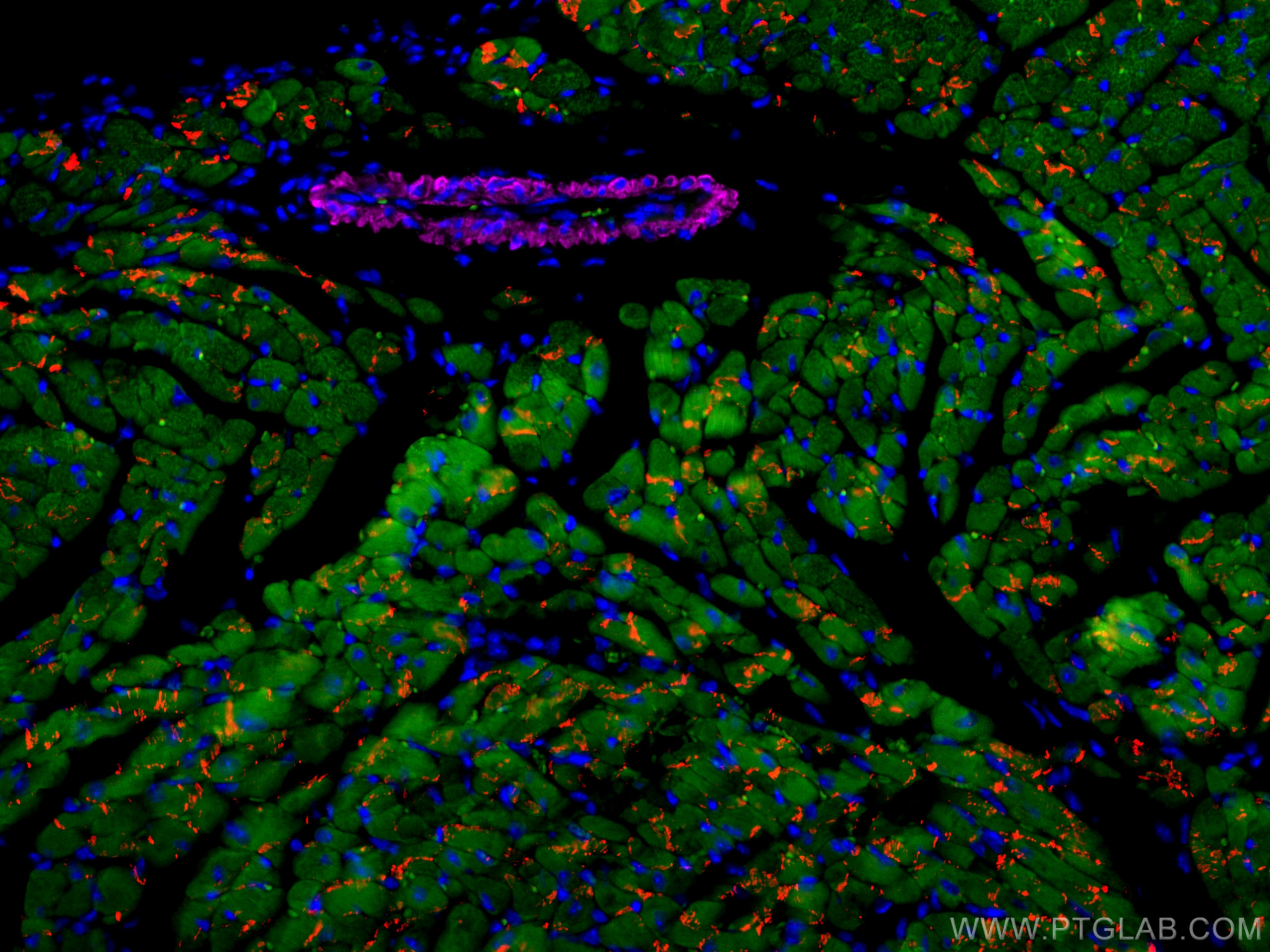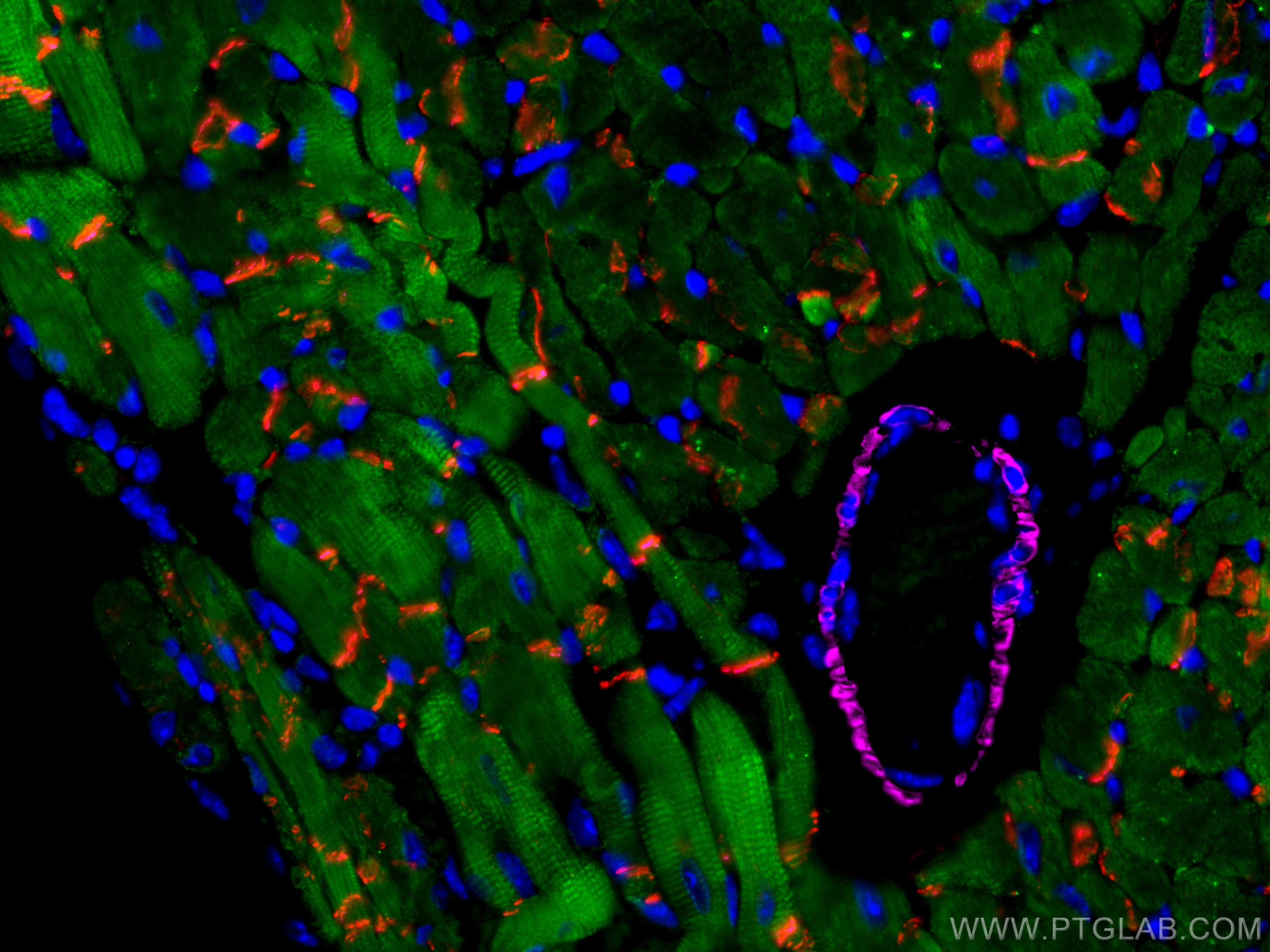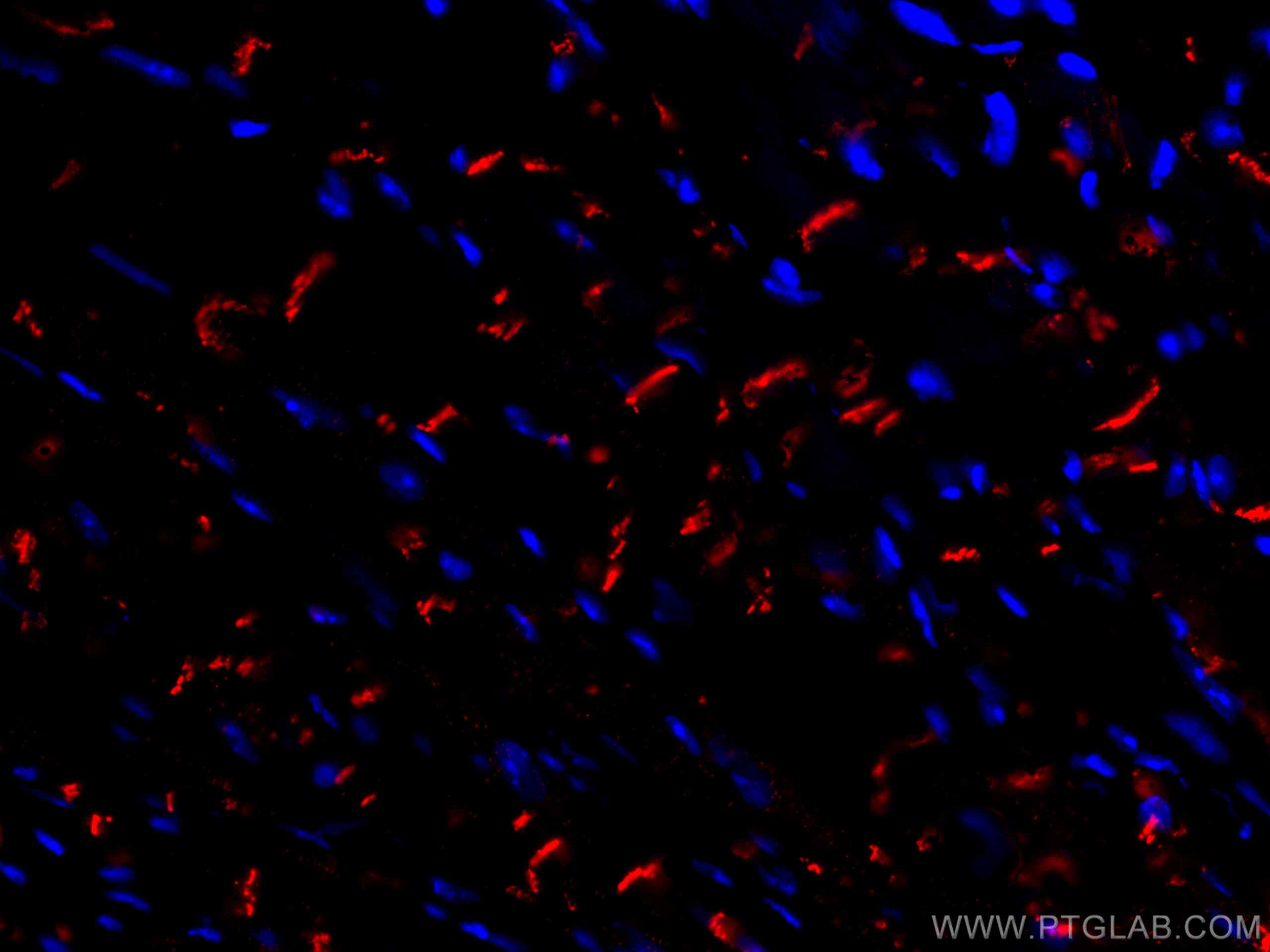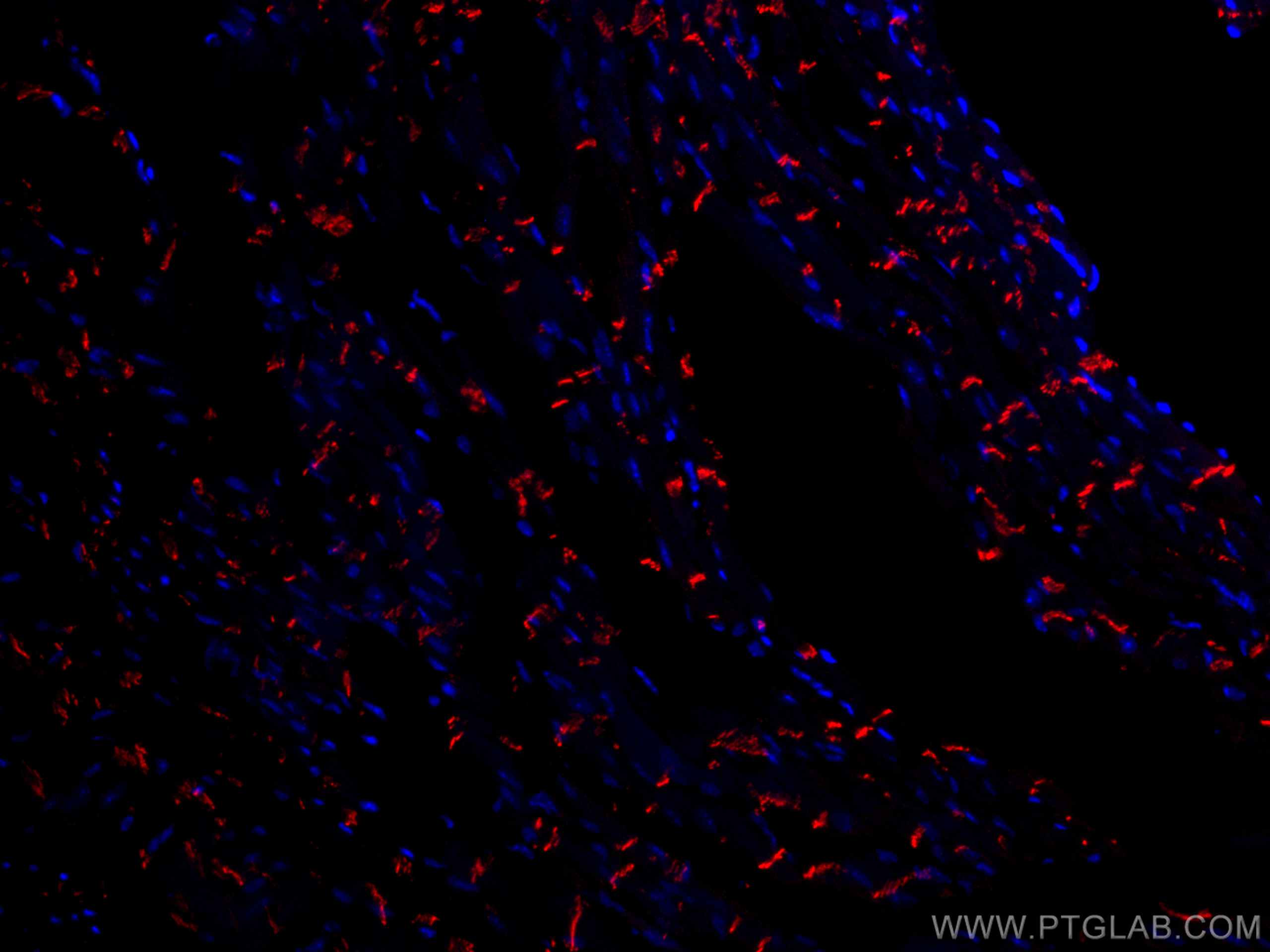- Phare
- Validé par KD/KO
Anticorps Polyclonal de lapin anti-N-cadherin
N-cadherin Polyclonal Antibody for IF
Hôte / Isotype
Lapin / IgG
Réactivité testée
Humain, rat, souris
Applications
IF
Conjugaison
CoraLite®594 Fluorescent Dye
N° de cat : CL594-22018
Synonymes
Galerie de données de validation
Applications testées
| Résultats positifs en IF | tissu cardiaque de souris, |
Dilution recommandée
| Application | Dilution |
|---|---|
| Immunofluorescence (IF) | IF : 1:50-1:500 |
| It is recommended that this reagent should be titrated in each testing system to obtain optimal results. | |
| Sample-dependent, check data in validation data gallery | |
Informations sur le produit
CL594-22018 cible N-cadherin dans les applications de IF et montre une réactivité avec des échantillons Humain, rat, souris
| Réactivité | Humain, rat, souris |
| Hôte / Isotype | Lapin / IgG |
| Clonalité | Polyclonal |
| Type | Anticorps |
| Immunogène | N-cadherin Protéine recombinante Ag16792 |
| Nom complet | cadherin 2, type 1, N-cadherin (neuronal) |
| Masse moléculaire calculée | 906 aa, 100 kDa |
| Poids moléculaire observé | 130 kDa |
| Numéro d’acquisition GenBank | BC036470 |
| Symbole du gène | CDH2 |
| Identification du gène (NCBI) | 1000 |
| Conjugaison | CoraLite®594 Fluorescent Dye |
| Excitation/Emission maxima wavelengths | 588 nm / 604 nm |
| Forme | Liquide |
| Méthode de purification | Purification par affinité contre l'antigène |
| Tampon de stockage | PBS avec glycérol à 50 %, Proclin300 à 0,05 % et BSA à 0,5 %, pH 7,3. |
| Conditions de stockage | Stocker à -20 °C. Éviter toute exposition à la lumière. Stable pendant un an après l'expédition. L'aliquotage n'est pas nécessaire pour le stockage à -20oC Les 20ul contiennent 0,1% de BSA. |
Informations générales
Neuronal cadherin (N-cadherin), also known as cadherin-2 (CDH2), is a calcium-binding protein that mediates cell-cell adhesions of neuronal and some non-neuronal cell types.
What is the molecular weight of N-cadherin? Is N-cadherin post-translationally modified?
The molecular weight of mature N-cadherin is 127 kDa. N-cadherin is synthesized in a precursor form that undergoes proteolytic cleavage by furin at the Golgi apparatus. Additionally, it can be phosphorylated by casein kinase II and N-glycosylated, which affects its stability (PMID: 12604612 and 19846557).
What is the subcellular localization of N-cadherin? What is the tissue expression pattern of N-cadherin?
N-cadherin is an integral membrane protein present at the plasma membrane, forming adherens junctions. It is widely expressed in the nervous system, where it flanks the active zone of synapses and is important for synapse formation and remodeling. It is also present in the lens, skeletal, and cardiac muscles (PMID: 3857614). In the muscle, N-cadherin plays a role in myoblast differentiation, while in the heart it is required for the formation of intercalated discs. Additionally, N-cadherin is present in blood vessels, promoting angiogenesis by forming adhesive complexes between endothelial cells and pericytes (PMID: 24521477).
What is the role of N-cadherin during the epithelial-mesenchymal transition (EMT)?
EMT is a crucial process during gastrulation that leads to the formation of mesenchymal cells. It is marked by decreased expression of E-cadherin and upregulation of N-cadherin, which promotes cell migration (PMID: 23481201). Similarly, upregulation of N-cadherin is observed in many cancer cell types and is associated with increased invasiveness and metastasis.
Protocole
| Product Specific Protocols | |
|---|---|
| IF protocol for CL594 N-cadherin antibody CL594-22018 | Download protocol |
| Standard Protocols | |
|---|---|
| Click here to view our Standard Protocols |





